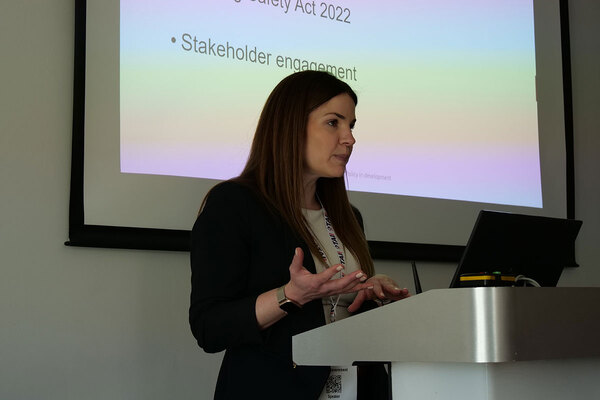
Shona Robison is Scottish cabinet secretary for social justice, housing and local government
Why Scotland is abolishing the local connection requirement for homeless people
Scottish housing secretary Shona Robison explains why the government has decided to get rid of local connection requirements for homeless people
I firmly believe that people experiencing homelessness should have the freedom to choose wherever they want to live.
Most people will want to stay somewhere they have links, but others may want to move to be closer to friends or to take advantage of better job opportunities or education. For others, they may want to simply move somewhere new to get a fresh start.
“Someone from the Highlands who wants to move to Edinburgh to start a new job, or enrol on a course, can do so without having to jump through unnecessary hurdles to access housing there”
As with anyone, this can be beneficial for overall health and well-being. Crucially, it can also help prevent repeat homelessness, as people can make full use of the opportunities afforded to them by their new area.
For too long, the ability of homeless households to choose where they live has been held back by local connection rules.
Under these rules, councils could ask someone to prove their connection to the local area – perhaps by showing that they or a family member lives there, or they have a job – before they could be given housing and access to other support services.
If they couldn’t prove this link, local authorities were within their right to refer them to another area where they did have a local connection.
In Scotland, we had already taken steps to give homeless households more freedom over where they live by making these powers discretionary, effectively meaning that while councils could ask about a person’s local connection to the area, they weren’t required to.
As a result of this, councils were only making use of these powers in rare cases.
However, the rules were still a barrier to people experiencing homelessness in Scotland. That’s why we’ve just brought in legislation, which came into force on Tuesday, suspending the power for Scottish local authorities to refer to another local authority in Scotland on the basis of a homeless household’s local connection.
This means that someone from the Highlands who wants to move to Edinburgh to start a new job, or enrol on a course, can do so without having to jump through unnecessary hurdles to access housing there. Likewise, someone from Glasgow can move to the Scottish Borders for a fresh start.
“Scotland already has some of the strongest homelessness rights in the world and we are working to strengthen these even further”
This change puts rights for homeless households on a par with those for people who own or privately rent their homes, ensuring they have access to the services they need wherever they are in Scotland.
However, with this change we recognise that some local authority areas are more likely than others to see an increase in pressure on their housing supply and services.
We have engaged with local authorities in advance of laying this legislation, including island authorities and cities, to better understand their concerns.
What this engagement has shown is that, ultimately, local authorities share our ambition of ending homelessness.
This change has seen widespread support from the sector, including from Alison Watson, director of Shelter Scotland, who said: “This much-anticipated change is one that we have been long calling for and is another milestone in securing progressive rights to housing.”
Scotland already has some of the strongest homelessness rights in the world and we are working to strengthen these even further.
We are committed to doing all we can to address disadvantage and prevent homelessness from happening in the first place.
That is why we are introducing new homelessness prevention duties in a forthcoming housing bill.
Under the proposals, public bodies, such as health and social care services, would have a legal duty ‘ask and act’ about a person’s housing situation. By intervening at an earlier stage and encouraging services to work together to respond to people’s needs, the responsibility for preventing homelessness can be better shared across public bodies.
We also continue to support local authorities to develop Housing First programmes.
A recent evaluation of Scotland’s Housing First pathfinder programme saw 579 people with experience of homelessness and multiple disadvantage receive keys to a new home and a new life.
The Scotland Housing First pathfinder evaluation detailed that virtually all the tenants interviewed said that Housing First had had an extremely positive impact on their quality of life overall, with some describing the effects as “transformational”.
We want to prevent people from ever having to experience the trauma of homelessness, but where homelessness cannot be prevented, we should be helping people to find a settled home as quickly as possible in an area of their choosing.
This change in local connection rules will help us to do that.
Shona Robison, Scottish cabinet secretary for social justice, housing and local government
Sign up for our Scotland newsletter
Already have an account? Click here to manage your newsletters












